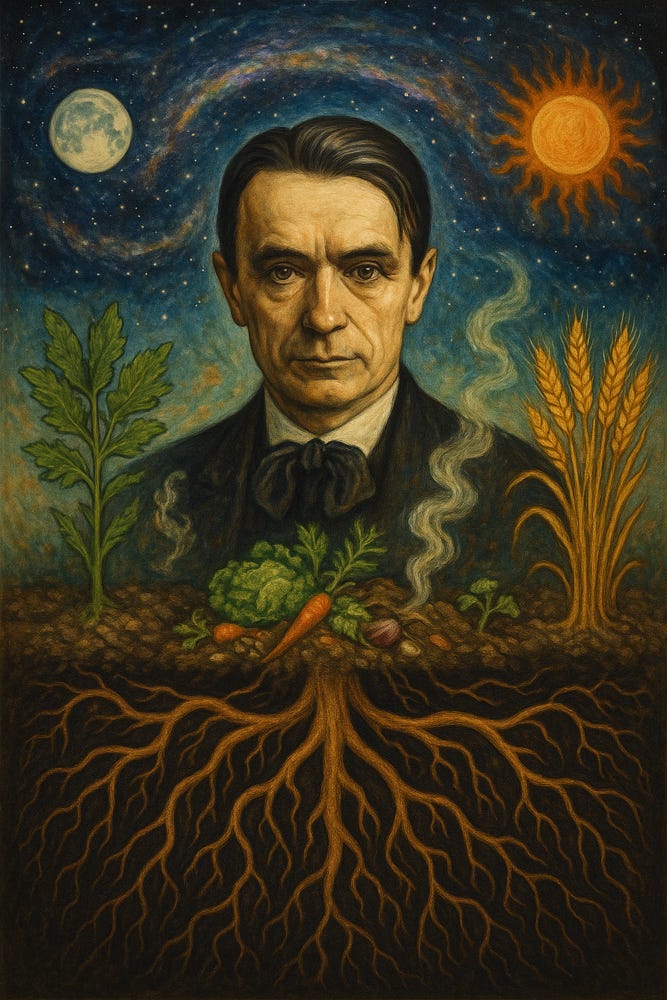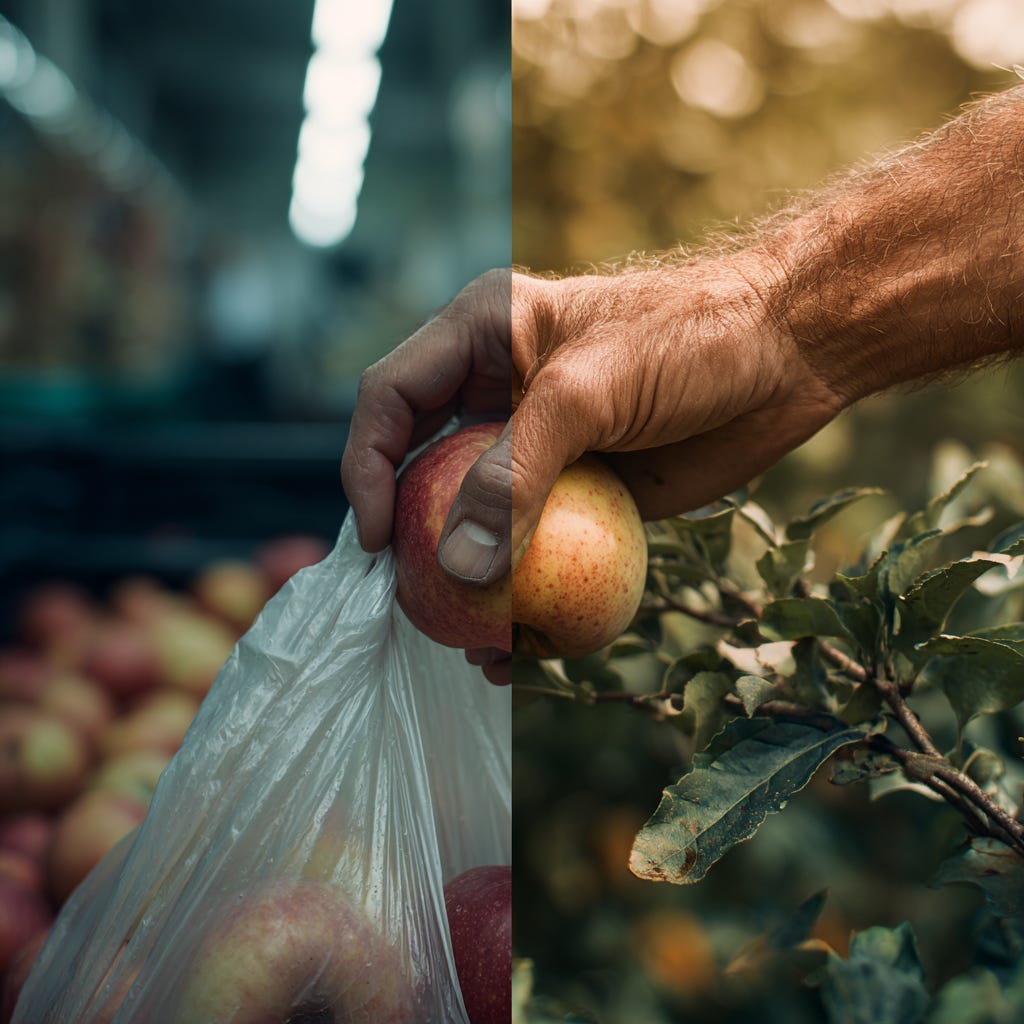Dirt, Dreams, and the Regenerative Road Ahead
A blueprint for an equitable food economy
Once upon a time, in 1998, I slung a backpack over my shoulder, let my hair grow long, and set out to find a different way of living.
Europe was my classroom.
My syllabus? The soil.
Through a program that was called WWOOF—Willing Workers on Organic Farms (and has since been renamed "World Wide Opportunities on Organic Farms”) —I found myself not just working the land, but understanding it.
WWOOF began in 1971 in the UK, when a London secretary named Sue Coppard spent a weekend helping out on an organic farm. She found the experience so enriching, she set up a network so others could do the same. What started as a weekend retreat evolved into a global movement of farm-based cultural exchange, built on the belief that food and community are inseparable.
At first, it felt like a romantic adventure. I was a young traveler exchanging labor for room, board, and a window into a forgotten wisdom. But what I found was more than cultural exchange or free meals. I stumbled upon a truth that would shape my life’s work: how we grow our food defines how we live.
Rudolf Steiner and Biodynamic Farming
In former East Germany, I encountered biodynamic farming—a philosophy and practice pioneered in the 1920s by Rudolf Steiner, the Austrian philosopher and social reformer. Most people know his influence through Waldorf education, but fewer know that he also planted the seeds of the organic agriculture movement.
Steiner believed that farms should be treated as self-sustaining organisms. He introduced preparations made from herbs, minerals, and manure, applied in accordance with lunar and cosmic cycles.
To some, Steiner’s ideas seem esoteric. But to those who’ve felt the pulse of the Earth through their hands, they make a deeper kind of sense. Biodynamics wasn’t just about crops. It was about harmony, relationship, and cycles—ideas that would later inspire the vertical gardens and systems thinking seen in my first film, Fuel.
This wasn't merely an idyllic European chapter. My path wound through the olive groves of Italy, the permaculture plots of Northern Africa, and the rainforests of Central America.
I witnessed both the beauty and brutality of a broken food system. I saw intentional communities—descendants of the 1960s and 70s back-to-the-land movement—where people attempted to reimagine how we live, work, and grow together.
Some were off-grid outposts with solar panels and composting toilets. Others ran like micro-governments, complete with consensus-based decision-making and communal meals. Amid this diversity, one truth echoed: regeneration is not a luxury—it’s a necessity.
The Paradox
Today, we find ourselves in a paradox.
We have an employment crisis and a food crisis, but no bridge connecting the two. Globally, nearly 800 million people are food insecure, while millions of others are unemployed or underemployed.
In the United States, only about 1.3 percent of the workforce is employed in agriculture, and yet the sector suffers from chronic labor shortages. Meanwhile, only four cents of every food dollar reaches the farmer. The rest evaporates into packaging, marketing, transportation, and middlemen.
What if we flipped the script? What if instead of food wrapped in plastic and shipped across continents, we prioritized food grown regeneratively, by hands that know the land? What if we reimagined WWOOF not just as a travel opportunity, but as a blueprint for a decentralized, equitable food economy?
This isn’t utopia. It’s practical. It’s possible. And it’s necessary.
From Sir Albert Howard, who studied traditional Indian farming and declared that the health of soil, plant, animal, and man is one and indivisible, to the Indigenous stewards who managed landscapes for millennia using fire, rotation, and symbiotic planting, we have always had the knowledge. What we lack is the will.
The Change
The climate is changing. Governments are wavering.
But the Earth remains our constant—our teacher, our mirror, our mother. If we want a regenerative economy, we have to start with a regenerative food system. One rooted in trust, cooperation, and hands in the dirt.
So if you're feeling the itch to see the world and make a difference, consider spending time on a farm. Learn what it means to sow seeds of regeneration—not just in soil, but in society. Ask questions. Share meals. Work the land. You’ll be amazed at what grows.
Let’s build something better. Together.
— Josh Tickell








Love this story. I know from my own experience growing up poor that I never felt poor when I could collect eggs from the chickens or eat fresh strawberries warm in the sunshine (few made it back to the house). What we are all waiting for is permission to change things and we don’t need it - the Earth belongs to all of us. I hope your work and words inspire more people to find someplace to grow!